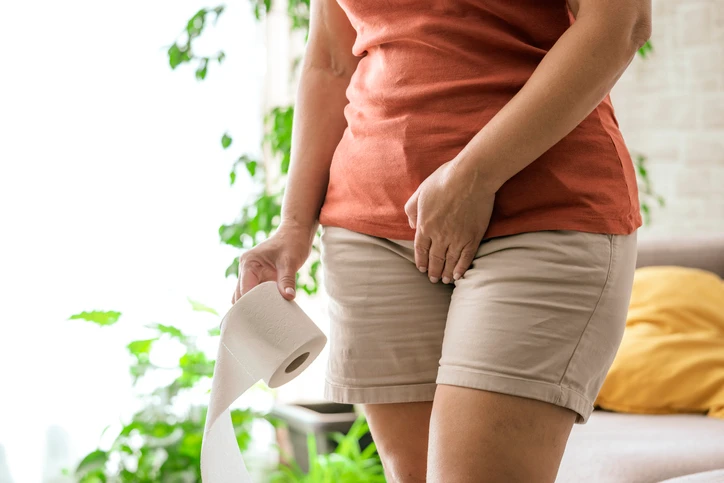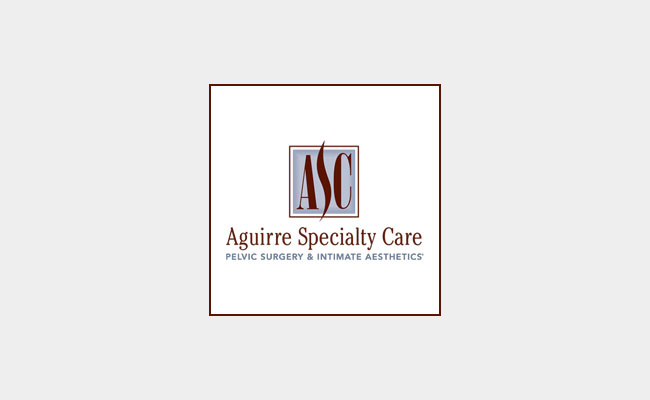All bladder leaks are not created equal. In fact, there are several types of urinary incontinence, along with varying symptoms. The problem is, if you aren’t properly diagnosed, you can’t properly correct the problem! As a urogynecologist with decades of experience treating urinary incontinence, I offer both surgical and non-surgical options to help you achieve optimal wellness with ease. To help you better understand urinary incontinence and its causes, let’s first answer some basic questions together:

Do you leak urine when you cough, sneeze, laugh or jog?
You may be suffering from stress urinary incontinence, which is bladder leakage caused by increased abdominal pressure when the bladder is subjected to the force or stress of a particular activity. Common causes of stress urinary incontinence include childbirth, constipation, heavy lifting, and the natural aging process; these all cause pelvic floor muscles to weaken.
Non-surgical treatments for stress urinary incontinence include:
● Kegels
● At-home devices
There are several effective devices you can use in the privacy of your own home to strengthen pelvic floor muscles and reduce bladder leakage. Examples include Apex, a probe that delivers muscle stimulation to improve mild urinary incontinence after childbirth.
● Pelvic floor therapy (biofeedback, bladder training, manual therapy)
● Vaginal pessary, a removable diaphragm-like device worn in the vagina to help provide support.
● FemiLift™, a laser vaginal resurfacing treatment, also helps improve vaginal dryness and looseness.
● The O-Shot®, a PRP injection for orgasm dysfunction which also helps with urinary symptoms.
● The Viveve™ Treatment, a vaginal rejuvenation treatment using radiofrequency for introital laxity which also helps reduce symptoms of stress urinary incontinence.
Surgical options for urinary stress incontinence include:
● Sub-urethral slings, mid-urethral slings, urethral injections, and the Burch procedure.
Do you leak urine while you are sleeping, or do you frequently wake up to go to the bathroom in the middle of the night?
Nocturia is the official name for this condition, in which you wake frequently at night to urinate. Possible causes include high fluid intake, sleep disorders, and bladder obstruction. Treatment can sometimes be as simple as restricting fluid intake past a certain time in the day. There are also certain medications that can help reduce symptoms of overactive bladder.
Do you feel like you have to go to the bathroom all the time?
You may be suffering from an overactive bladder. There are several types of medications to help calm bladder nerves and improve your symptoms. Other possible therapies include manual therapy, biofeedback, bladder training, and Kegel exercises. There is also sacral nerve stimulation, a minimally invasive surgical procedure
Do you feel the urge to pee, but then can’t make it to the bathroom in time?
You may be suffering from urge incontinence, for which a wide range of therapies can help, including bladder training techniques, BHRT, medications, at-home devices and behavioral modification, and sacral nerve stimulation.
Do you feel like you never completely empty your bladder?
You are likely suffering from urinary retention, when your bladder is unable to fully empty and it retains urine. This condition will result in overflow incontinence. The only effective treatments for urinary retention are either self-catheterization or sacral nerve stimulation
Sacral Nerve Stimulation is an implantable device, much like a pacemaker, for improving bladder and bowel control. There are two FDA-approved therapies:
InterStim Therapy, which has been approved since 1997, helps to stimulate the sacral nerves and improve urge urinary incontinence, urinary frequency, urinary retention, and fecal incontinence. This small implant is inserted at the third sacral nerve root under the skin of the upper buttock and is extremely well-tolerated.
Axonics Therapy, approved in 2019, is a rechargeable, MRI-compatible device for the treatment of overactive bladder, urinary retention, and fecal incontinence.
To learn more about treatments for urinary incontinence, don’t hesitate to call us with your questions! We are here to help you! Please call 303.322.0500 or request a personal consultation online today.
— Dr. Aguirre



